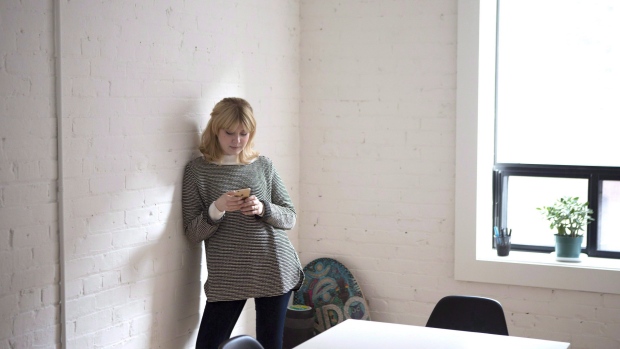Apr 9, 2018
Canadian online bartering community Bunz launches digital currency BTZ
The Canadian Press

TORONTO -- A Canadian online bartering community known for promoting a cash-free economy says it's bought into the cryptocurrency craze.
Bunz, which was founded in Toronto in 2013 by Emily Bitze, began as a Facebook group that encouraged users to trade their unwanted goods rather than seeking cash.
Eventually, booze, transit tokens and -- somewhat controversially -- gift cards became items commonly sought in trades.
That trend led to the creation of BTZ, a digital currency for the community that can also be used at participating retailers.
New and existing users of the Bunz app will get 1,000 units of BTZ, which the company says has a current value of about three coffees.
Bunz says it now has over one million users after branching out across Canada and internationally and launching its own website and mobile app.
- OSC gathering crypto trading platform intel after complaints
- Ontario bitcoin miner buys Nelson Mandela's golden hand casts for US$10M
MORE ON CRYPTOCURRENCY
CEO Sascha Mojtahedi says BTZ is not yet an actual cryptocurrency but the plan is to eventually make it one.
"We wanted to create something that people could interact with and migrate that (into a cryptocurrency) as we learn from the data and the information and the (user) behaviours," Mojtahedi says, adding that it's not yet determined whether there would be a mining element to the cryptocurrency as is the case with Bitcoin.
"We're already working on our blockchain infrastructure solution and establishing the token itself, that will happen very shortly. But the mining component, I think we're looking at a number of different solutions around mining that are pretty different than the way the market approaches it currently."
While the local businesses that are now accepting BTZ have essentially set a baseline value for the currency -- one Toronto cafe is charging 300 BTZ for a latte while a bar is asking 600 BTZ for a pint of beer or order of fries -- Mojtahedi says he doesn't want to interfere in setting its value. He also wants to avoid speculation in the currency.
"We're not offering any inference of the foreign exchange value because we don't know, we're really just starting. We've established a value with our shops and we think it's an opportunity to learn from the community themselves rather than trying to peg some value to this currency," he says.
Jean-Paul Lam, an associate professor of economics at the University of Waterloo, has used Bunz as an example when teaching students about concepts around money as a medium of exchange and bartering.
He says Bunz risks alienating some of its community with the introduction of BTZ.
"Any type of barter system creates problems with finding partners and you have to spend a huge amount of time to find the right partner and find an exchange that would be satisfying to both parties," he says.
"So I can understand why they are trying to introduce that medium of exchange that is standardized. But at the same time, it completely defeats the purpose of what it was in the first place, which was a cashless society that would exchange goods for goods."






